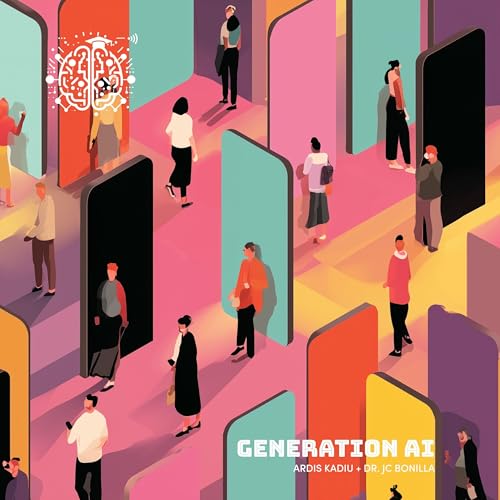In this kickoff to a special three-part series titled "Making AI Work: A Buyer’s Guide for Leaders", hosts Ardis Kadiu and Dr. JC Bonilla break down the overwhelming AI landscape in higher education. From general assistants like ChatGPT to workflow-transforming agents, this episode offers a crucial roadmap for institutional leaders wondering what’s hype, what’s helpful, and what’s worth investing in. If you're evaluating ed tech tools or shaping a long-term AI strategy in higher education, this episode is your essential primer.
00:00 Mapping AI for Enterprise Leaders
04:10 AI Roadmap: From Foundations to Adoption
08:29 Understanding AI: Tools vs. Transformations
12:27 AI Assistants: Fast and Accessible
15:04 "Enterprise AI Deployments in Institutions"
18:29 "CRM Copilots and Agents Overview"
19:43 AI Copilots Revolutionizing EdTech Platforms
22:55 End-to-End AI Solutions Explained
26:47 AI-Driven Workflow Automation Tools
31:49 "Enhancing Systems with AI Workflows"
36:38 Automated Student Engagement Workflow
37:46 "AI's Enterprise Value Dilemma"
43:54 "ROI Correlation with Decision Proximity"
48:04 Evaluating AI Autonomy Levels
51:02 "AI Readiness Framework Explained"
53:16 Evaluating and Comparing AI Vendors
55:49 Prospects and Students
- - - -
Connect With Our Co-Hosts:
Ardis Kadiu
https://www.linkedin.com/in/ardis/
https://twitter.com/ardis
Dr. JC Bonilla
https://www.linkedin.com/in/jcbonilla/
https://twitter.com/jbonillx
About The Enrollify Podcast Network:
Generation AI is a part of the Enrollify Podcast Network. If you like this podcast, chances are you’ll like other Enrollify shows too!
Enrollify is made possible by Element451 — The AI Workforce Platform for Higher Ed. Learn more at element451.com.
Hosted by Simplecast, an AdsWizz company. See pcm.adswizz.com for information about our collection and use of personal data for advertising.
 42 分
42 分 53 分
53 分 41 分
41 分 56 分
56 分 56 分
56 分 2025/09/3026 分
2025/09/3026 分 2025/09/2348 分
2025/09/2348 分 46 分
46 分
